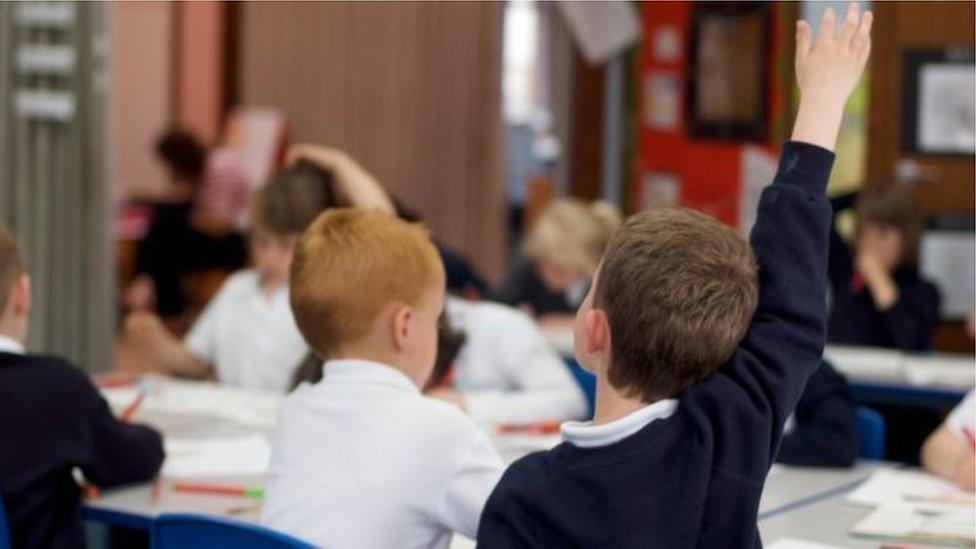NI Education: School special needs plan 'needs actioned now'
- Published
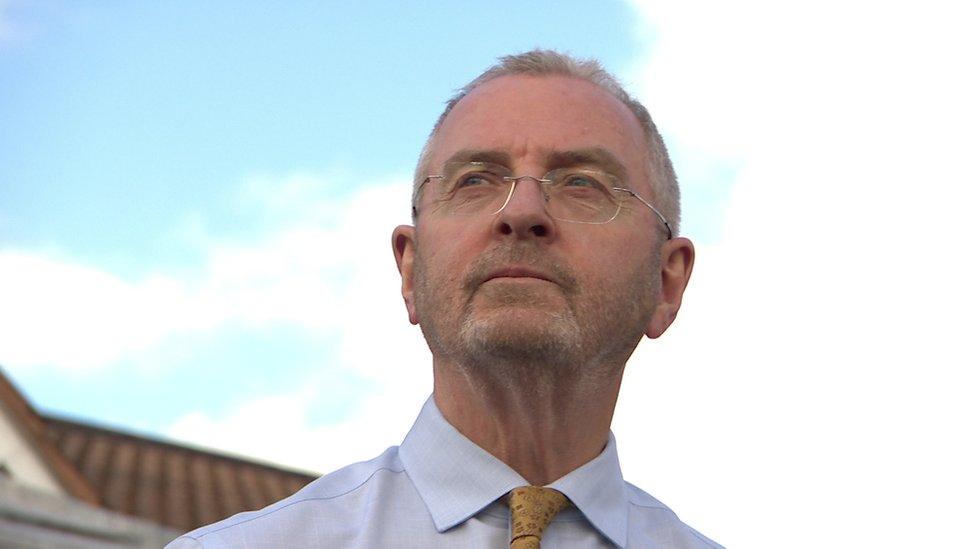
Seán Dillon said provision for the places was needed before it becomes "backs to the wall"
A plan to provide places for pupils with special educational needs (SEN) in a County Tyrone school "needs to be actioned now", its principal has said.
Seán Dillon, of Primate Dixon Primary, told BBC News NI the school wanted to open an additional support class for autistic pupils in 2025.
He said provision was needed before it became "backs to the wall".
The education minister has previously said more than 1,000 extra SEN school places are needed in September.
In 2023 hundreds of children started the summer holiday without knowing which school they would be going to when the new school year began.
A senior official at the Education Authority (EA) has warned that "it is going to be difficult and challenging to place all children" with SEN this summer.
Dale Hanna told MLAs on Stormont's Education Committee the EA was exploring a number of solutions to create more school places.
"It is going to be difficult and challenging to place all children before 1 September," he said.
"There will be when we get to 30 June a number of pupils and families that have yet to have their place confirmed."
Donna Allen from the EA told MLAs the authority had bought a number of mobile classrooms from County Kildare in the Republic of Ireland in order to create more space in schools.
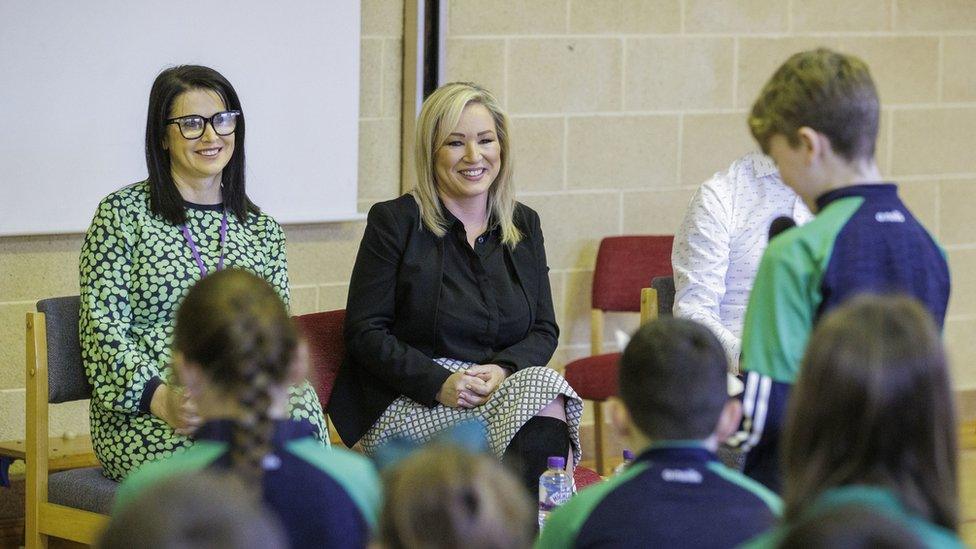
First Minister Michelle O'Neill (centre) recently visited the school in Coalisland
"We look at every single potential option, nothing is ever ruled out," she said.
Janis Scallon, from the Department of Education, also told the committee more than 100 schools had refused to create new specialist classes for children with SEN.
Specialist support centres
Primate Dixon already has three specialist support classes for children with SEN, including for autistic pupils from P1 to P4.
But the school wants to open another specialist class for autistic pupils from P5 onwards in 2025.
However, Mr Dillon, speaking to BBC NI's Sunday Politics, said the school needed a decision and support from the authorities to enable that class to open.
Allow X content?
This article contains content provided by X. We ask for your permission before anything is loaded, as they may be using cookies and other technologies. You may want to read X’s cookie policy, external and privacy policy, external before accepting. To view this content choose ‘accept and continue’.
"We're seeing big increases in the numbers of children with their own particular needs," he said.
"When I came to this school 20 years ago we had three children with statements of special education - today we have 72.
"Of those we have 32 children who are in specialist support centres inside school.
"There has grown up within the school a huge range of expertise, knowledge and commitment to meeting the needs of every child.
"It takes a lot before we will say to a parent 'we can't meet the needs of your child.'
"That very, very rarely ever happens."

Seán Dillon says his school could not operate without classroom assistants
Mr Dillon also told the programme that ministers need to recognise the value of classroom assistants, adding his school could not operate without them.
"Our classroom assistants support children in every way across school. They are supported in terms of their learning needs, their personal needs, sometimes their medical, physical and other needs," he said.
"We have children in the school who have conditions that can be life critical if the support isn't there for them. That support is there and the people who give that support are dedicated in their job. They are highly, highly supportive of the children. Very simply, without that group of classroom assistants we simply couldn't operate."
Last week, a formal offer on teachers' pay was accepted by the five main teaching unions here. However no such agreement has been reached to increase the pay of classroom assistants.
He said there is "wonderful dignity" in the work classroom assistants do and, to his mind, "the way that you repay that is in the salary check that these people have at the end of each month".
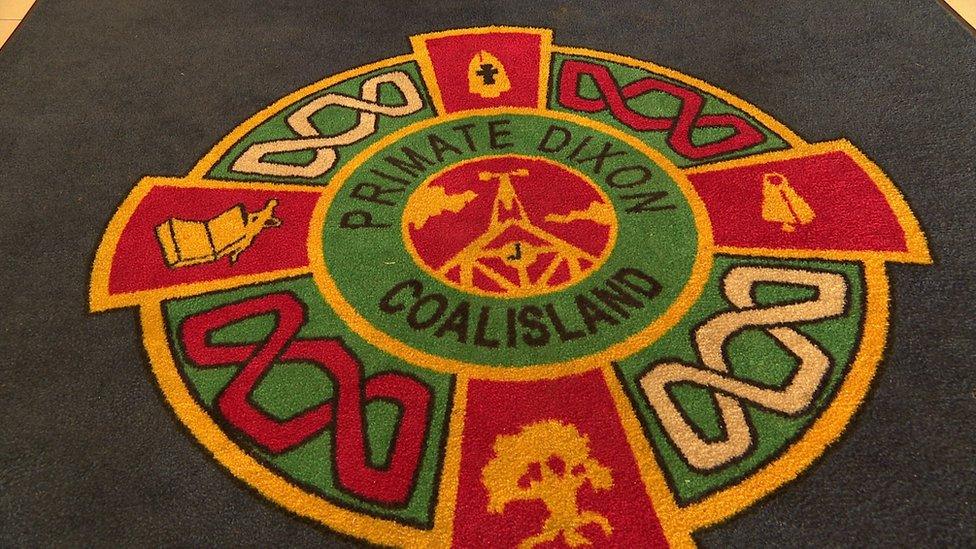
The school's current autism support centre is for younger pupils from P1 to P4.
Mr Dillon said the school now has a plan to create a second autism support centre for older pupils from P5 onwards.
"We can see whenever we look at the numbers that we have, never mind other children who would like to be placed here, that in September 2025 we will not have the provision for them existing in school," he said.
According to previous figures from the Department of Health (DoH), one in 20 schoolchildren in Northern Ireland has a diagnosis of autism.
According to the EA, there has also been a 50% rise in the number of children with a statement of SEN since 2018 and a 25% increase in pupils in special schools.
More than 68,000 pupils in Northern Ireland have some form of special educational need - about 20% of the school population.
Nearly 27,000 have a statement of SEN, which is a legal document setting out a child's needs and the support they should have in school.
Sunday Politics is on BBC One NI at 10:00 BST on Sunday and on BBC iPlayer.
Related topics
- Published11 April 2024

- Published21 March 2024
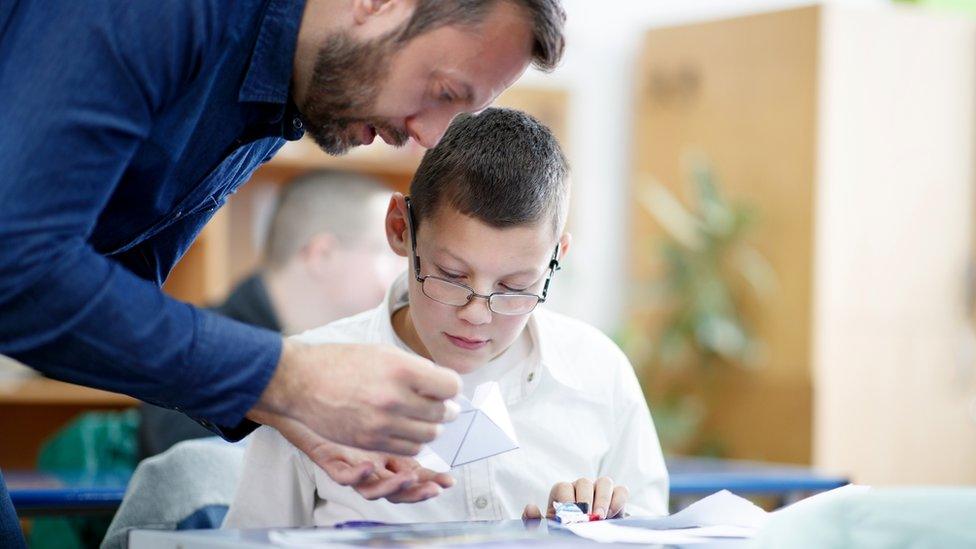
- Published18 May 2023
